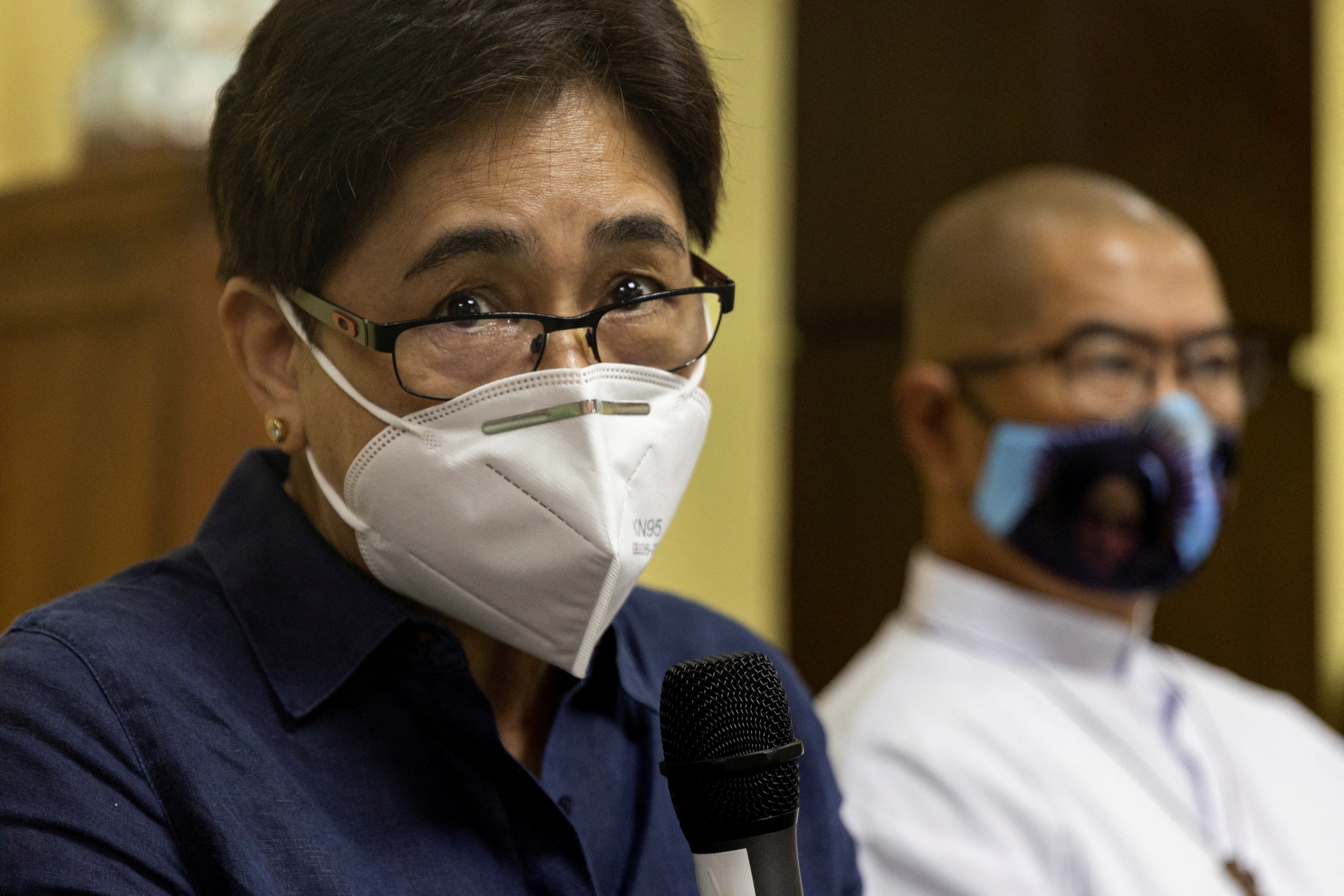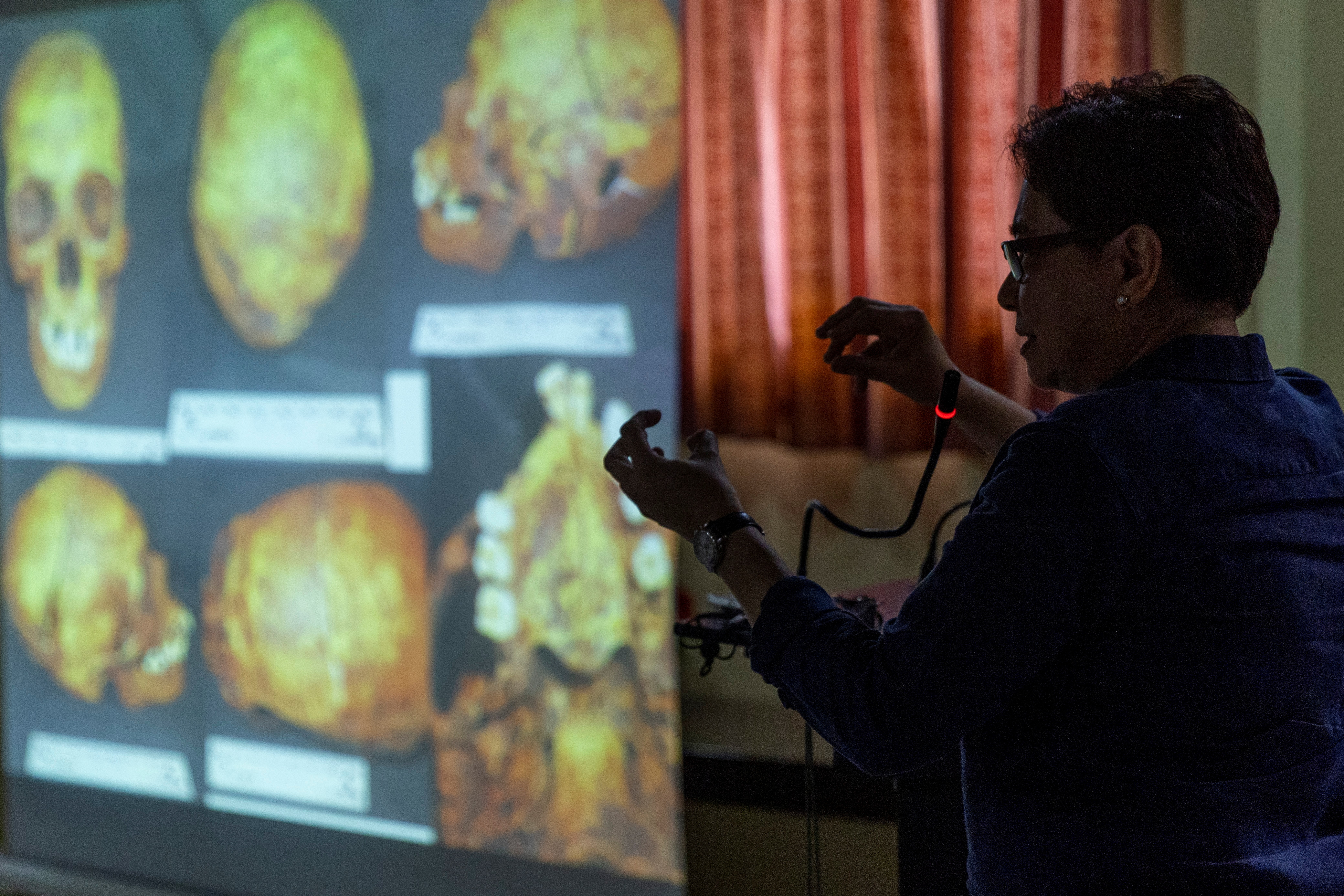The War On Drugs in the Philippines
"We have bones that could speak.""In Tagalog, we call it bones of truth because the bones cannot lie."Reverend Flaviano Villaneuva, Catholic priest"This looks like an entry [bullet hole in skull during forensic examination]. So an apparent gunshot wound to the head for this one.""That's how you get away with murder. And here I am in my ivory tower, saying]; no though, you're wrong. You've missed this, you've missed that [in police investigating their own]. How do you think they feel about me? They [police authorities] hate me.""Am I at risk? Should I consider moving elsewhere? There's a certain effect on your psyche. You're not safe. Knowing that in the Philippines, assassins can simply come near you, start shooting and get away with it.""When I'm there in the room [her office at the University of Philippines College of Medicine] with all of these skeletons, I feel that I'm giving them what was denied to them before.""They were not given a proper investigation, no proper examination.""What happens to the unnamed, unclaimed bodies? Where are they?"Dr. Raquel Fortun, forensic pathologist, chair, pathology department, University of Philippines College of Medicine
 |
| Forensic pathologist Raquel Fortun discusses findings on drug war deaths beside Catholic priest Flavie Villanueva, who counsels drug war victims, during a news conference in Manila, Philippines, April 12, 2022. REUTERS/Eloisa Lopez |
When
Philippine president, Rodrigo Duterte ran for election in 2016, one of
the promises he made was a commitment to clean up drugs in the
Philippines. This made the former mayor of a troubled Davao city which
voters viewed as a testing ground of the candidate's ability to clean up
corruption, rampant crime and the overwhelming availability of drugs
creating a society of drug addicts vote with great enthusiasm for the
man. And even though he gave police a clear mandate to clean up the drug
trade urging them to use all means possible, his popularity did not
wane.
News
stories circulating in the country and abroad about the brutality of
police tactics and the extrajudicial killings that took place targeting
young men in poor neighbourhoods with claims that they were drug dealers
were refuted by their grieving families who insisted they were victims
of the drug trade, and not among those who led the drug trade making
money out of the destitute for whom poverty was a fact of life and who
sought comfort in drugs.
There
were public executions the police defended with claims that the victims
were resisting arrest or threatening police and their subsequent deaths
resulted from their own ill-doing. With a new administrative government
in a return of an earlier president whose dynastic family tradition of
governing the island and who had proved incapable of doing so wisely and
well and whose reputation for corruption led to the election of Duterte
as a feasible alternative, it's anyone's guess whether things can
improve.
Dr.
Fortun, 62, is dedicated to her job, as one of few forensic
pathologists in the country. She accuses the police and medical
authorities of covering up state-sanctioned murder that took place under
the Duterte government. She works alone, piecing together evidence of
murder relating to the former government's drug war. For the past year
she has been examining bones, working for the Reverend Flaviano
Villanueva, linked to the families of the victims.
Of
the 46 skeletal remains she has examined to date , seven cases were
revealed where the death certificates indicated the cause of death to be
of natural origins, while her investigation demonstrated clearly that
these were in fact homicides. Disclosed at a news conference in April,
the findings pointed a finger of suspicion at medical authorities who
appeared to be complicit in a cover-up of official criminal malfeasance.
As well, the full extent of the drug war was revealed to potentially be
many times greater than what has been disclosed by the government.
The
estimated number of people killed, considered since 2015 to be 30,000
is higher by far than the official figure. According to the Philippine
National Police that number is just over 6,200. The murders and
casualties of the drug war had seen no independent inquiry. Since Dr.
Fortun's revelations, the International Criminal Court announced its
intention to open an investigation. The Duterte administration responded
by warning of its intention to block investigators from entering the
Philippines.
 |
| Forensic pathologist Raquel Fortun discusses findings on drug war deaths during a news conference in Manila, Philippines, April 12, 2022. REUTERS/Eloisa Lopez |
Labels: Extrajudicial Killing, National Police, Philippines President Duterte, War on Drugs

<< Home